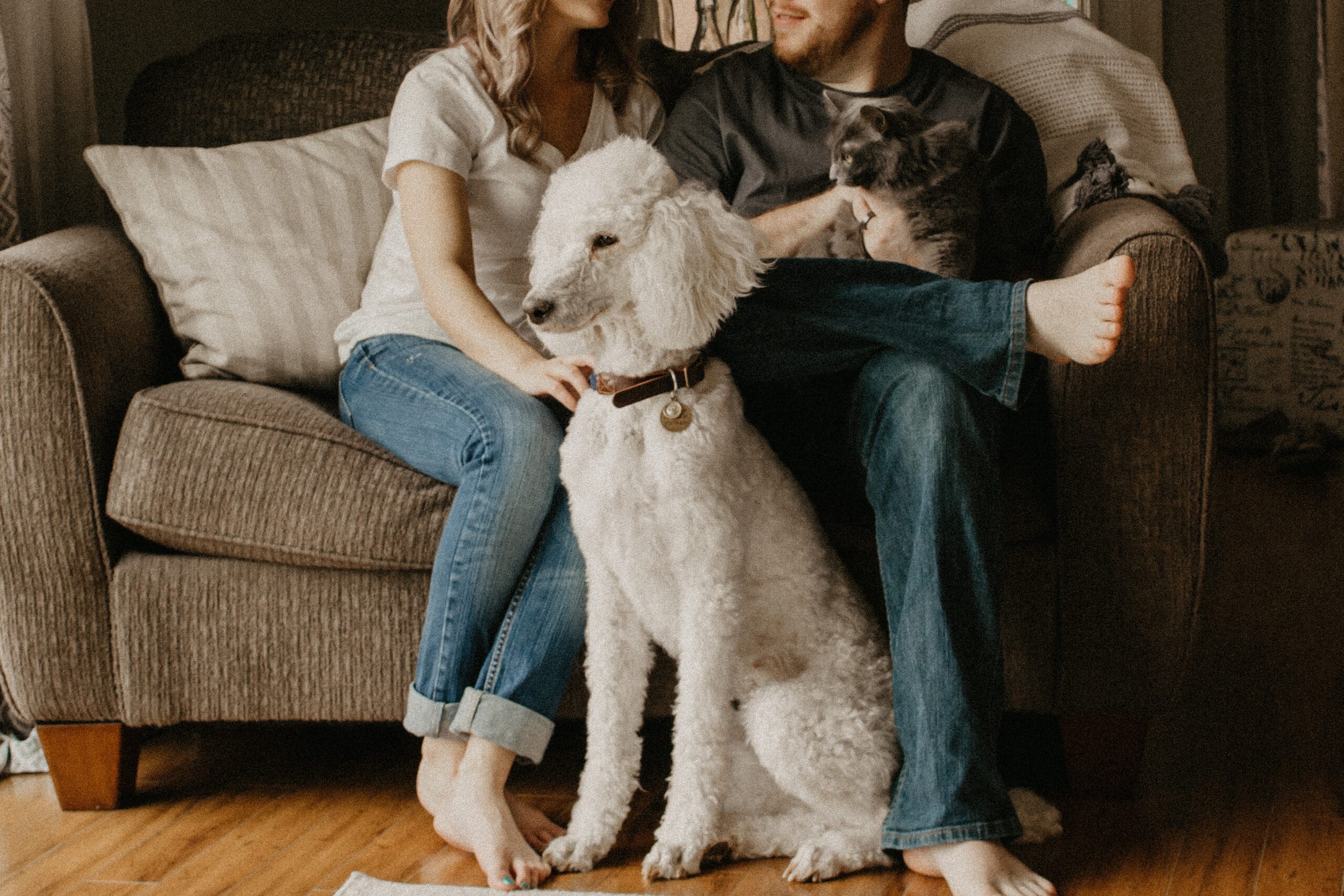
Who gets the pet in a divorce or relationship breakup?
Blog
20 September 2023
If you break up, this also has consequences for your pet(s).
Who will continue to care for the pet in that case? Should a visitation arrangement be agreed upon with your ex-partner?
Often several people in a family are attached to the pet, which makes this extra difficult.
Who is the owner?
A first question to ask in a divorce or relationship breakdown is who owns the animal and who gets the animal when you separate.
If you are married, one must look at the marital system that was adopted in the process.
- If you are married with community of property then all possessions, including your pet, are common. You must then mutually agree who will get the dog or who will take care of the cat from now on.
- If you are married without a marriage contract then the legal system applies. If you have purchased the pet together, you must agree who will take care of the animal from now on. If the pet already belonged to one of you before you got married, he/she remains the official owner.
- Under the system of separation of assets, the owner is the one in whose name the animal is registered. Who paid for the dog is irrelevant here.
When ending cohabitation, the rule is that what is yours stays yours. So that means that if you bought the pet, the animal remains yours.
Pets as quasi-goods
For a long time, pets were considered a chattel, an object, in the law.
In the event of a divorce or relationship breakdown, the pet therefore had the same position as other movable property that must be divided between you and your ex-partner, such as a closet, table, chairs,…
This has now changed.
Pets have become a specific category of property with the new property law.
Article 3.39 of the new Property Law stipulates that animals have sentience and biological needs.
This means that animals can experience pain and pleasure and also have biological needs, such as food, water, social contact, protection,….
The new property law on the one hand makes a distinction between persons, animals and goods, making it clear that animals acquire a separate status and are therefore no longer considered as pure objects. On the other hand, Article 3.39 of the new Civil Code stipulates that the rules on objects still apply to animals.
Animals are therefore referred to as quasi-goods.
Furthermore, no specific rules have been added to this new category of goods.
Pet access rules
Despite the fact that there are no specific rules for this new category of property, the (former) partners can agree together on a visiting arrangement for their pet.
This can be done by mutual agreement or in the case of divorce e.g. in a mutual consent agreement (EOT), in which agreements are also made about the other consequences of the divorce.
To determine the visitation arrangement, a balancing of interests is then made, which means that consideration is given to who has a better bond with the pet, who can take better care of him, has more time for the pet, whether children are attached to the animal, etc. This involves looking at one’s own interests as well as the interests of the animal.
In practice, the pet often goes along with the residence arrangement determined for the children.
If there are no children, it can be mutually agreed that the pet stays with one partner one week and with the other.
What in case no agreement is reached on the visitation arrangement?
When ex-partners disagree with each other about where the pet will stay and to what extent contact should be organized with the other partner, the court can decide on this.
There is also an increasing tendency in the courts to view animals effectively as a quasi asset. Not only the right of ownership is considered more, but also the affective bond that exists with the animal. The interest of the animal is then taken into account.
There is case law in two directions. On the one hand, the court will grant revindication claims if the animal’s right of ownership is proven. In that case, the property right takes precedence over the affective bond with the animal. On the other hand, there is also case law that states that there can be a right of access to an animal separate from the right of ownership, where one is more likely to look at the affective bond a person has with an animal.

How is a claim filed in court?
In practice, in the majority of cases ex-spouses, when they decide to separate, initiate proceedings for divorce and determination of urgent and provisional measures for the parties and, in addition, for urgent and provisional measures over the children.
Partners who were living together and decide to end their relationship can also initiate proceedings before the court for determining urgent and provisional measures for the parties themselves and for the children.
In case there are no children but the parties were married or cohabiting, of course, proceedings can also be initiated before the court for the determination of urgent and provisional measures for the parties themselves.
These proceedings can then also include a claim about the pet.
The family court has jurisdiction for this and will be able to rule on a settlement regarding the pet.
Can maintenance money be requested for the pet?
There are no specific rules regarding the possibility of claiming maintenance for a pet, as a pet is considered an object.
In practice, therefore, the partners must make their own arrangements regarding the costs of the pet. For example, it can be agreed that the animal’s food is paid for by the person where the animal currently resides and that more expensive costs, such as medication, vet fees, surgeries, etc. are shared. If you both own the animal, it is common for the costs to be shared.
In case an agreement is not reached, you can ask the court to record who will be responsible for the pet’s expenses. A maintenance award for a pet is not awarded in practice.
Please contact our office if you have questions or need assistance regarding a pet settlement in a divorce or relationship breakdown. Our Persons and Family Law team is ready to advise and assist you in these proceedings.

